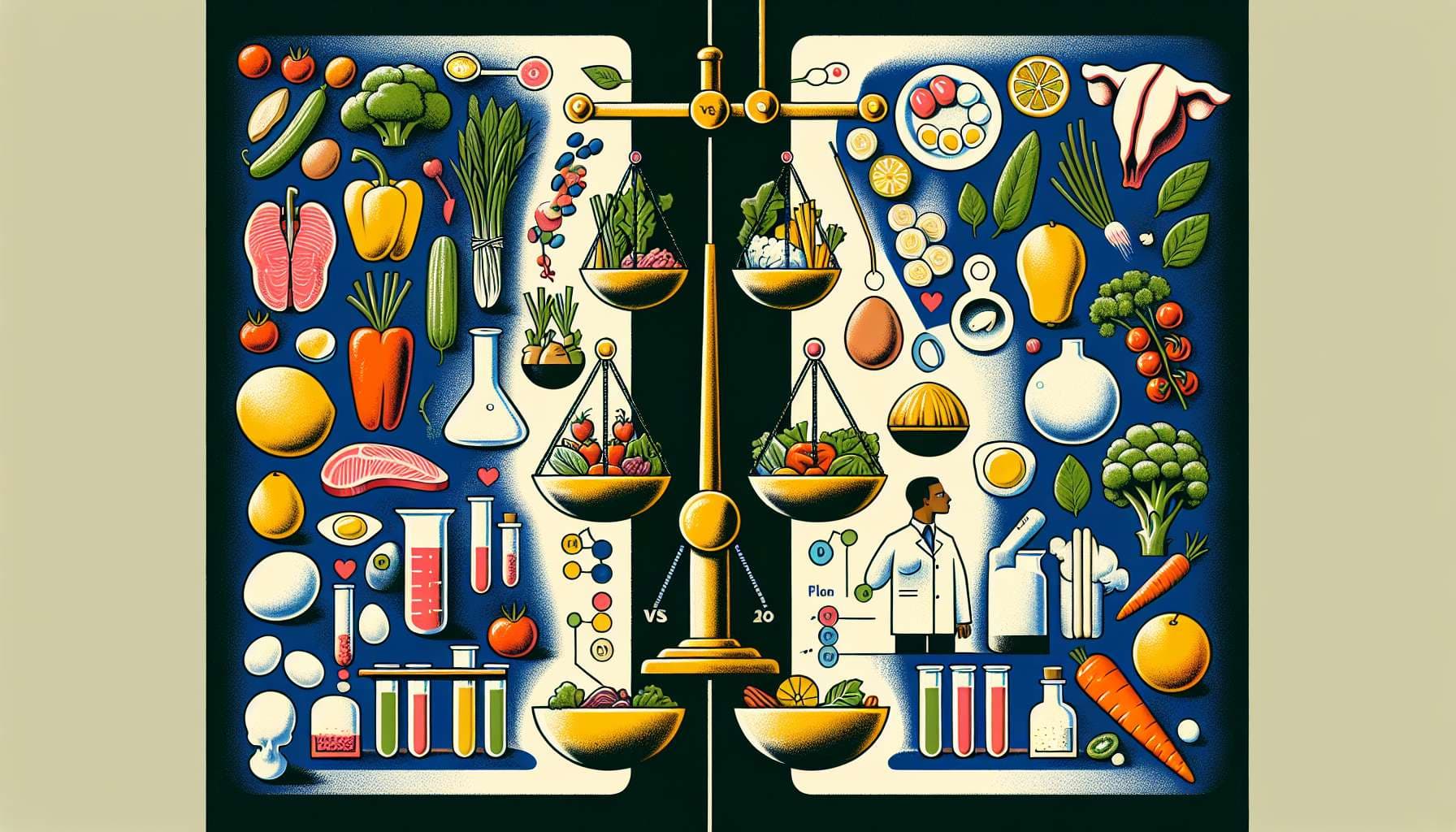
i.e "should I become vegetarian?"
Would a randomised controlled trial find that a vegetarian diet leads to better health outcomes than a vegan diet? (conditional on a reasonable RCT being done)
Resolves YES if a study is released showing that vegetarianism is healthier than veganism.
Resolves NO if a study is released showing no difference (with a suitable effect size) or that vegan is better.
Does not resolve if no reasonable RCT is done.
As for effect sizes, I don't know enough science to quantify what i'm interested in. Something in the ballpark of 2 or more QALY difference. (although I suspect that we would only be able to find much larger effect sizes with an RCT). Mental health counts.
The RCT can be published in 2024 or it could already exist. If you think you have such a study, cite it and explain the results and why it's reasonable.
As for reasonableness, the trial would have to span a period of 1+ month and not have glaring issues with controls and a decent sample size. Participants should ideally be given omega-3, b12, iron supplements, etc.
Vegetarian includes eggs, dairy, and bivalves (e.g., clams, oysters, mussels, scallops)
Vegan includes none of the above.
The closest thing I'm aware of that meets your criteria is Turner-McGrievy et al. (2015), which found that vegans had higher weight loss than vegetarians, though the study was not sufficiently powered to evaluate the significance of the difference (there were three other diets being investigated that were evaluated).
In any case, if you're genuinely interested in knowing if veganism might confer some health advantages over vegetarianism, it's probably unwise to limit your criteria to just RCTs. RCTs are great, but they are not necessarily the best methodology in every case. For example, if you're interested in knowing if veganism might be advantageous specifically along the axis of ASCVD, it's very hard to get good evidence in the form of RCTs, whereas we have a wealth of epidemiological evidence on the subject.
I understand that epidemiology as a methodology has its own drawbacks and limitations, but would you really accept the conclusions of a 1-month-long RCT if it flew in the face of an overwhelming amount of epidemiological evidence, especially with regards to disease endpoints that can take decades to progress?
@NBAP this is fantastic insight! Thank you so much!
I was more operating under the hypothesis that a vegan diet is bad for health because of lower protein quality and less bioavailable nutrients.
I actually would highly value epidemiological evidence! I just find it difficult to understand and evaluate the quality of these studies as a layman. Maybe I could make another prediction market which is less focused on RCTs.
@JackOBrien "I was more operating under the hypothesis that a vegan diet is bad for health because of lower protein quality"
Ah. Perhaps I can assuage your concerns a bit on this front, then. At the very least, evidence seems to indicate that when overall protein intake is adequate (generally regarded as 1.6 g/kg bodyweight in the evidence-based fitness and nutrition literature, which is double the RDA but actually not significantly more than the average American eats), plant protein is non-inferior to animal protein with regards to both muscle mass and strength:
https://pubmed.ncbi.nlm.nih.gov/29722584/
The question of nutrient adequacy is a bit harder to answer succinctly just because there are many essential nutrients. Narrowing the scope specifically to vegan vs vegetarian, some of these complexities fade away, but some remain. Perhaps some of the most notable:
- Vegans need to make sure that they're getting vitamin B12 from somewhere, whereas vegetarians tend to get some from milk (if nowhere else). However, this is typically a non-issue in practice. Plant-based milks are typically fortified with B12, and a tiny serving of nutritional yeast sprinkled on your food gives you tens if not hundreds of times the RDA.
- I would advise vegans to take an algae-based EPA/DHA supplement, but I would recommend a similar supplement to anyone regardless of their dietary pattern, and it's only a matter of whether the omega-3 is coming from fish oil or algal oil.
- Iron deficiency is a commonly-cited concern which should perhaps be monitored if you're not taking a multivitamin (which I personally recommend, despite the fact that it may be superfluous). In my case, I only get 30% of my iron RDA from my multivitamin, and despite donating blood regularly, my iron levels are consistently fine.
Beyond that, I don't think there are nutrients that vegans specifically need to worry about, but it really depends on your particular diet. My recommendation would be to spend 1 week closely tracking your food on a website/app like Cronometer to determine if there are any particular nutrients that your diet generally lacks. For example, I noticed that my diet was lacking in copper, manganese, magnesium, and phosphorus. Was that a big deal? I don't know! I felt fine, and I probably was fine. But to be safe, now I have a small bowl of pumpkin seeds and hemp seeds everyday, and that shores up all four of those nutrients.